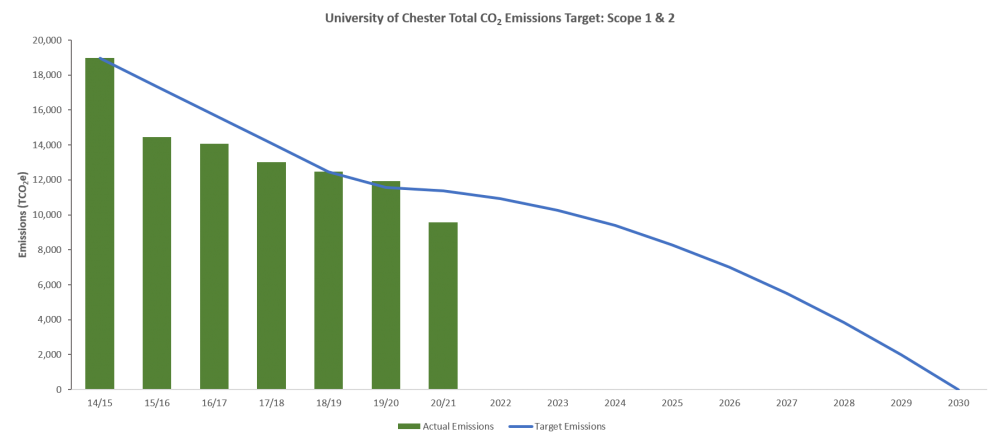Carbon, Energy and Water

The University is committed to reducing its energy usage and minimising its environmental impact.
All our learning sites demonstrate our commitment to sustainability and act as a test bed for innovative solutions, where researchers can monitor impact before expanding across the wider estate. They show how we can:
- Operate more efficiently
- Minimise our impact on the environment
- Promote low carbon lifestyles
- Move towards a closed-loop system
Attachments
Carbon and energy
The University is committed to reducing its carbon emissions in line with the United Nations Paris Agreement, which aims to keep the increase in global average temperature to well below 2 degrees Celsius of pre-industrial levels and pursue efforts to limit the increase to 1.5 degrees Celsius.
As part of its commitment, the University of Chester aims to:
- achieve net zero for Scope 1 and 2 emissions across all its activities and operations by 2030.
- determine its Scope 3 emissions baseline and set targets for reduction.
Water
About 71% of the earth is water, it is vital to the existence of all life on earth. Globally water is a valuable and precious resource that is needed for drinking and agriculture. Wasting water adversely affects catchments, and although not all catchments in the Dee Valley Water area have water quality issues, everyone should be encouraged not to waste water.
To improve the metering and monitoring of water consumption across the estate, we work with our water suppliers to identify opportunities for reducing consumption and wastage; notices in bathrooms and kitchens remind staff and students to report leaks or dripping taps to the Facilities Helpdesk to minimise unnecessary wastage.
In 2021/22 the University used 50,875 m2 of water equating to 17.5 tonnes of CO2e.
Over 30 water refill points have been installed across all learning sites, including outdoors near sports facilities, reducing the number of plastic bottles consumed on site. In July 2019, 450,000 less plastic water bottles were consumed on site.
During construction and refurbishment work, the Estates Projects team ensure that sustainable drainage and flood prevention measures are installed. Via a planned maintenance programme, gutters and drains are regularly cleared to prevent flooding during intense rainfall.
